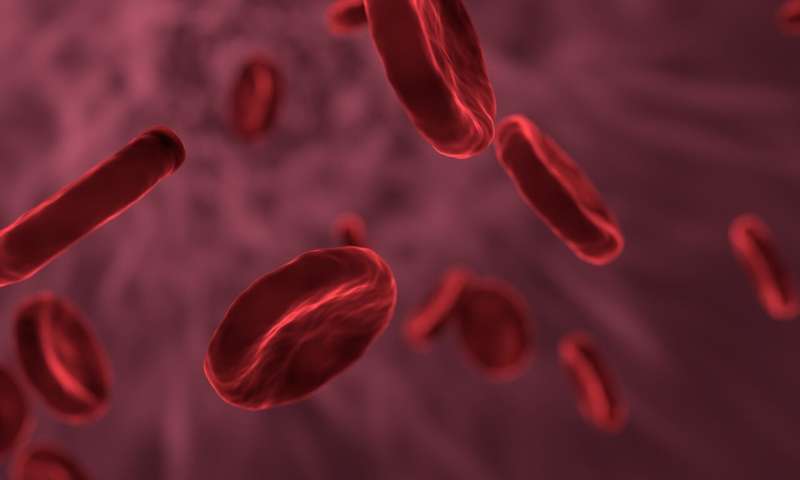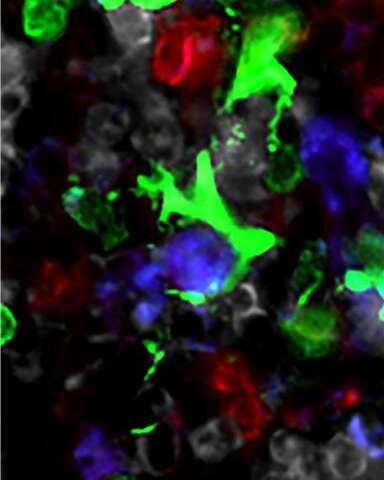

Microorganisms are considered dirty organism that threaten our health, decay food and cause inconvenience in our daily life. However, they are playing a critical role in making nutrients by metabolizing food, allowing all living creatures to live on. There are 2,000 kinds of microorganisms and several hundred trillions living in our body. Most of these microorganisms live in the digestive tract but their effect is evident in our entire body. Recently, a research team from POSTECH (Pohang University of Science and Technology, President Moohwan Kim) discovered how microbiota transmit signals through the entire body and control hematopoiesis in the bone marrow.
Professor Seung-Woo Lee, Research Professor Yunji Park, and integrated program students, Seungwon Lee and Hyekang Kim of Division of Integrative Biosciences and Biotechnology from POSTECH described the mechanism how microbiota signals are sent to different organs. Also, they utilized imaging research to prove that CX3CR+ mononuclear cells contact hematopoietic progenitors for the first time. Their research is introduced as featured content in the journal of the American Society of Hematology, Blood.
Recent research on microorganisms concluded that microbiota control biological phenomena not only in the digestive tract but also in lung, liver, brain, bone marrow and other organs. But no research was able to define a mechanism for relaying microbiota signals to the entire body or for producing immune cells by receiving microbiota signals.
Professor Lee and his research team focused on the fact that the microbiota regulate the immune system of our body by controlling hematopoiesis in the bone marrow to produce white blood cells. In this process, the team discovered that the microbiota signal including bacterial DNA is transferred to the bone marrow through the bloodstream and CX3CR1+ mononuclear cells in the bone marrow recognize this signal.

They explained that when CX3CR1+ mononuclear cells recognize microbiota signals, they release signal substances called cytokines which control and stimulate the body’s defense system through signal transduction. They also explained that cytokines control the number of hematopoietic progenitors or stimulate differentiation into myeloid lineages to make blood cells.
Furthermore, they verified that CX3CR1+ mononuclear cells contact hematopoietic progenitors at the perivascular region and they function as a signal, also receiving microbiota signals.
They discovered the hematopoiesis control mechanism which is controlled by cytokines produced when CX3CR1+ mononuclear cells recognize microbiota signals transferred to the bone marrow.
Source: Read Full Article